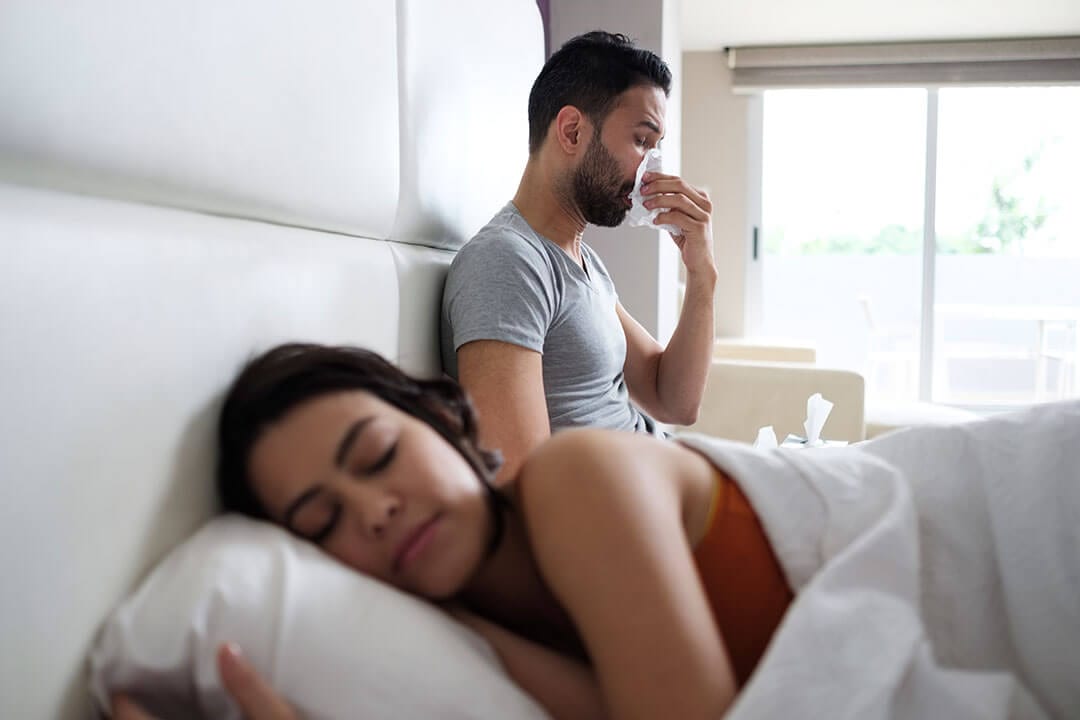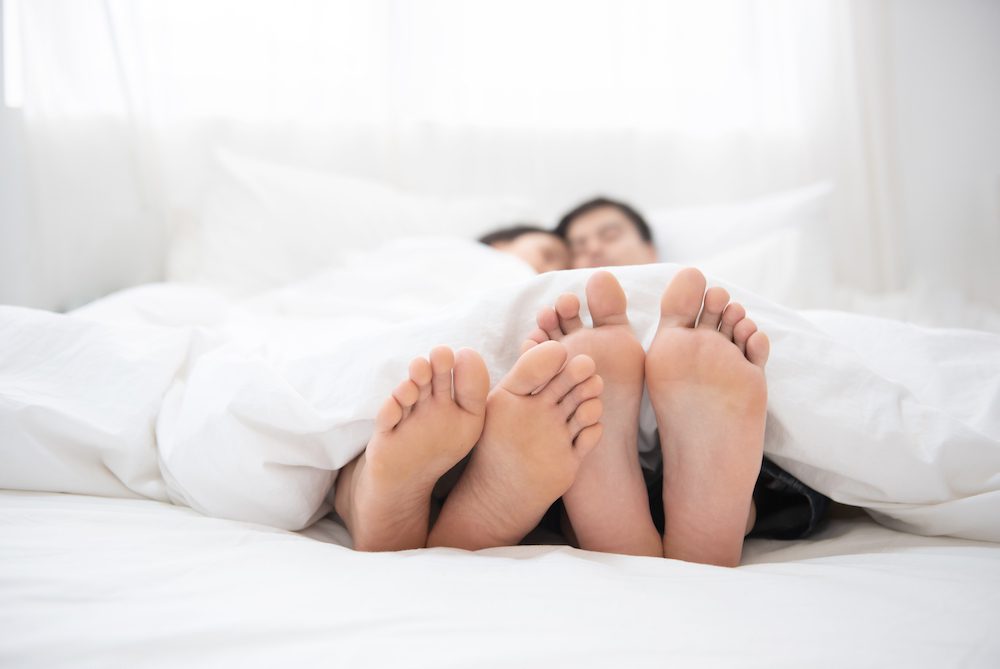You’ve gone in for your routine physical examination, and you’re told what millions of Americans are: you have high blood pressure But, like many Americans, you may not be aware of the truth behind the powerful connection between blood pressure spikes and the quality of your sleep.
As a sleep doctor, I spend a lot of time explaining the health benefits of sleep, from everything like our mental health to even helping us look younger. In short, while quality, restorative sleep helps support our health, the opposite is also true: sleep disorders can affect our mind, bodies and even leave us more prone to depression.
I’ll tackle the most common questions about high blood pressure and sleep, including is lack of sleep can cause high blood pressure; why sleep apnea may play a role, and what might be behind a sudden spike of high blood pressure at night.
Key Takeaways
- High blood pressure, or hypertension, can contribute to various health issues.
- Inadequate sleep can lead to high blood pressure, increasing the risk of heart disease and stroke.
- Both short sleep duration and poor sleep quality may lead to elevated blood pressure levels.
- Prioritizing sleep hygiene and getting sufficient sleep are crucial for maintaining healthy blood pressure.
How Dangerous is High Blood Pressure?
High blood pressure, also known as hypertension, is classified as Stage One or Stage Two. Stage One hypertension is a reading of 130/80 mm Hg or above, while Stage Two has readings of 140/90 mm Hg or above. Anything exceeding 180/120mm is considered a medical emergency.
If you’ve been diagnosed with hypertension, or you’ve just experienced a sudden spike in blood pressure, you’re far from alone. In fact, according to the CDC, 45 percent of adults in the United States experience high blood pressure, and only a quarter of those have their blood pressure properly being treated.
But just how dangerous is high blood pressure?
Blood pressure can have a dramatic impact on your health, especially if you have chronic hypertension–but even sudden spikes in high blood pressure can contribute to the following.
Heart Health
If you’re struggling with high blood pressure, your heart muscle has to work harder to pump blood. The added pressure leads you to a higher risk for complications, such as irregular heart rates; artery disease; an enlarged left heart and potential heart failure.
Eye Health
Health consequences some may be less aware of is the connection between blood pressure and our eyesight. There are small blood vessels in your eye that lead to important nerves; because of this, chronic hypertension can damage your retina, optic nerve, and cause changes in vision.
Brain Health
Your brain, of course, needs a reliable blood supply. Chronic high blood pressure has been linked to an increased risk of strokes and even some forms of dementia. Some experience changes in memory or speech.
Other Organs
While the connection between high blood pressure and poor cardiovascular health is well known, hypertension has even been linked to kidney disease, mood changes, and weaker bones. National Vital Statistics Reports estimates a mortality rate for hypertension complications of just over 10 per 100,000 people.
Sleep Deprivation and High Blood Pressure?
When most people think about high blood pressure, they might have the image of a poor, high salt diet and lack of exercise. And if that’s what you were thinking might be behind your high blood pressure, there’s a chance that you’re right.
Smoking, obesity, a sedentary lifestyle, excess sodium, and other factors, including chronic kidney disease and genetics also make you more susceptible to hypertension. But one thing that often gets ignored? Lack of sleep.
Sleep regulates hormones like cortisol–when people are chronically sleep deprived, the nervous system isn’t able to regulate these hormones which can lead to elevated blood pressure.
A study conducted by researchers at the University of Arizona last year found that even just one or a few poor nights of sleep could cause a sudden spike in blood pressure. The 300 men and women who participated did not have any known heart conditions and were monitored through the night. There was a positive correlation between sleeping less and higher blood pressure spikes during the night, building on other evidence just how important sleep is for our heart health.
What Causes High Blood Pressure at Night?
While poor sleep is associated with higher blood pressure and blood pressure spikes, it goes the other way too: people with high blood pressure may be more prone to chronic anxiety, which can in turn play a role in poor sleep. That’s why I’m so serious about treating not just the body but also the mind, and urge clients to get their racing thoughts under control by using a scientifically designed cooling headband like Ebb Precision Cool to relax at night.
But having high blood pressure only at night, or experiencing high blood pressure spikes at night could point to something more specific. High blood pressure at night, many experts believe, points to signs of a specific sleep disorder.
What is the Connection Between Sleep Apnea and High Blood Pressure?
Sleep apnea, or obstructive sleep disorder, causes a reduction of airflow while you sleep; the most tell tale sign is snoring, as well as gasping for air, waking up frequently, and chronic daytime fatigue.
A national study of over 6,000 men and women, conducted through the John Hopkins School of Public Health found a correlation between high blood pressure and sleep apnea. While more severe sleep apnea, with over 30 lapses in breathing, presents the highest risk, this sweeping study found that even modest sleep apnea is associated with an increased risk of high blood pressure.
How Do I Lower High Blood Pressure?
Much of the advice related to lowering blood pressure has to do with lifestyle. By making changes to your diet, exercise, and sleep routine you may be able to get your hypertension under control without medication. That said, always be sure to consult your doctor and have your blood pressure monitored.
Establish a Regular Sleep Routine
Whether your blood pressure spikes are caused by lack of sleep or just worsened, now’s the time to commit to a regular routine and proper sleep hygiene. Start by finding your optimal time to wake and go to bed with my chronotype quiz. Then, make sure to unwind at the end of the day–I recommend an early evening cup of soothing herbal tea, and time to reflect by journaling.
Take Care of Your Sleep Apnea If You Suspect You Are Experiencing It
Get your blood pressure levels under control by making sure you rule out a sleep disorder. If you’ve been experiencing symptoms of sleep apnea, or even if your partner complains about your snoring, it’s important not to let it go unchecked.
It’s not the most fun advice, but just as taking care of your sleep is important for regulating your blood pressure, you’ll continue to struggle with hypertension if you ignore your diet. Reduce your sodium intake–the American Heart Health Association recommends a maximum limit of 2,300 mg per day, but ideally less than 1,500 mg a day. You’ll also want to include healthy fats from nuts and seeds, fresh produce, and limit your intake of saturated fat. Trans fats and fried foods should be eliminated as much as possible.
Check Your Risks & Get Your Sweat On
Insomnia and sleep deprivation can increase your risk of or worsen your already existing high blood pressure. But aging and genetics also play a role. If you have a family history of hypertension, it’s especially important your blood pressure is being monitored on a regular basis.
So now that you know about the important connection between high blood pressure and sleep, as well as some ways to naturally lower your blood pressure, start to think about immediate steps you can take to improve your health. With some healthful changes, you can get a better night of sleep.
References
Ask the Sleep Doctor
Have questions about sleep? Submit them here! We use your questions to help us decide topics for future articles, videos, and newsletters. We try to answer as many questions as possible. You can also send us an email. Please note, we cannot provide specific medical advice, and always recommend you contact your doctor for any medical matters.









